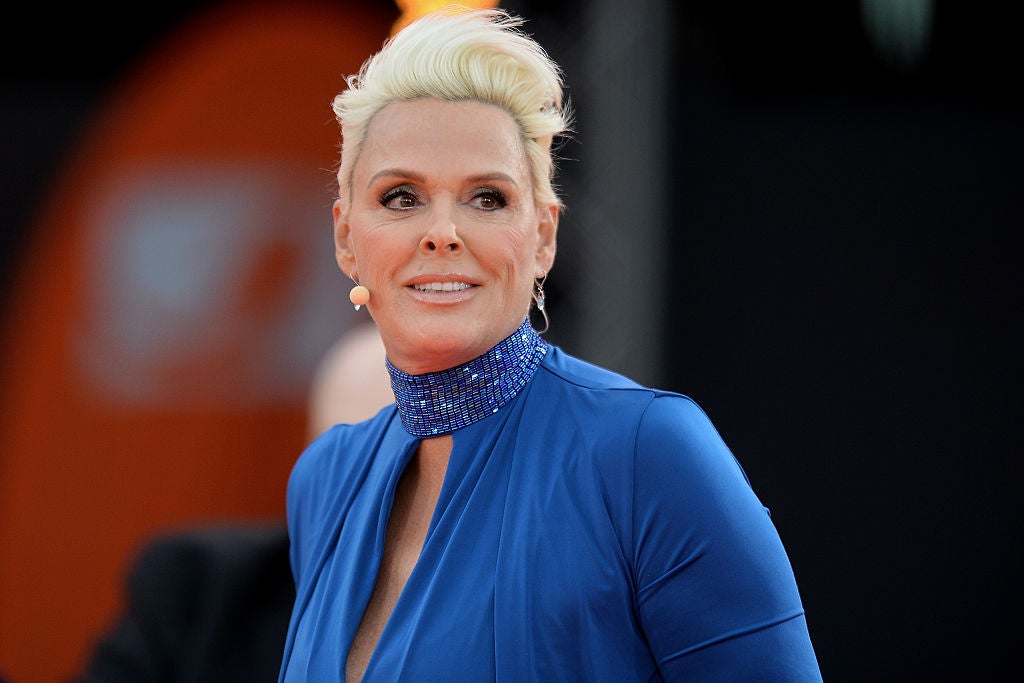Apparently having a baby in your fifties will ‘traumatise’ the child – but only if you're a woman of course
The ethical problems relating to older motherhood are routinely cast aside when it comes to men. After all, we are told, that’s the way it’s always been

Is there any age at which it’s okay to be a mother? Asking on behalf of two billion women across the globe.
Have a baby in your teens and you’re feckless. Have one in your twenties or thirties and you’re a workplace liability. Have one in your early forties – which I did – and you’re plain deluded about your physical and emotional capabilities. Try to pencil it in for your fifties and ha! You left it too late. The fertility ship has already sailed.
At least, that’s been the story up till now. As someone who’s had children at 33, 34 and 40, with friends who had them in their teens and twenties, I’ve never found it particularly convincing.
Occasionally I envy my peers who already have adult children making their way in their world. At other times I feel blessed to have been able to wait until I was less of an immature prat – speaking very much for myself – before embarking on motherhood. At no point have I thought “no, actually, we should all have been doing at the same time, circa 2002”.
Today, though, the narrative has changed. Improvements in healthcare, plus the wonders of modern technology, mean that some women are able to leave it even later before having babies of their own. Janet Jackson became a mother at 50; Brigitte Nielson gave birth at 54; Rachel Weisz had a daughter at 48. You would think this was something to celebrate. Finally, women can be more like men, who have children at all ages and never manage to inconvenience anyone. Let’s all follow their example!
Alas, turns out it’s still different for women. According to a clinical psychologist speaking at the American Society for Reproductive Medicine conference in Denver, women who have babies in their fifties could be “traumatising” their offspring.
Dr Julianne Zweifel argues that older mothers do not consider the impact that their imminent infirmity and eventual death will have on their children:
“The studies suggest it is traumatic for a child to lose a parent at a young age. Additionally the emotional impact of being a caregiver to an ageing adult can be devastating. If you are a teenager you are not developmentally prepared to deal with that anguish or responsibility.”
These are all very valid points, albeit ones which apply as much, if not more so, to Mick Jagger, George Lucas and countless other pensioner dads being praised as “late bloomers”. As the website Babble reports approvingly, “no matter how late women are waiting to have babies, as soon as menopause hits, the odds of becoming pregnant vastly diminish. But men can continue to procreate until they are old and grey”. Good for them, we are presumably meant to think.
The ethical problems relating to older motherhood are routinely cast aside when it comes to men. After all, we are told, that’s the way it’s always been. Besides, if what we’re talking about is who ends up caring for whom, we all know that caring is women’s work. Whether biology is destiny or destiny is biology, we’re supposed to accept this as the natural order of things. But what if women no longer want to?
I don’t wish to be glib about the consequences of ageing and bereavement. Nonetheless, these are hardly new phenomena. With or without a minority of older women giving birth, we are facing a much broader crisis concerning our approach to these issues. We close our eyes to the inevitability of dependency and death, and fail to set up the social support networks necessary to deal with what will happen to us all. Then we blame women or, more specifically, Mummy, when things fall apart.
There has long been an element of schadenfreude surrounding discussions of female reproductive lives. That there is no male equivalent of the menopause – other than buying a motorbike and getting a bad tattoo – is presented as evidence of male biological superiority. Once the hot flushes set in, women are supposed to meekly accept obsolescence (or rather, to carry on doing the vast majority of the world’s unpaid work, albeit without recognition, as a form of atonement for no longer being sufficiently exploitable as a sexual object and / or reproductive vessel).
That a minority of women are now challenging their supposed biological destiny will be seen as a threat by some. Indeed, a revision of the “young = exploitable, old = worthless” narrative affects the status of all women, regardless of whether they have children at any stage in their lives. I can’t help thinking this forms part of the moral panic surrounding late motherhood.
For some people, it is “traumatising” to think of women’s reproductive lives as just as rich, varied and unpredictable as men’s. But what if they are? Surely children deserve to be supported, not told their entire lives are a consequence of bad timing.
Do we really think it’s worse to be born to an older mother than not to be born at all? If so, it’s our attitude to ageing, care and mortality that really needs to change. In the meantime, mothers of all ages, you’re fine just as you are
Join our commenting forum
Join thought-provoking conversations, follow other Independent readers and see their replies
Comments